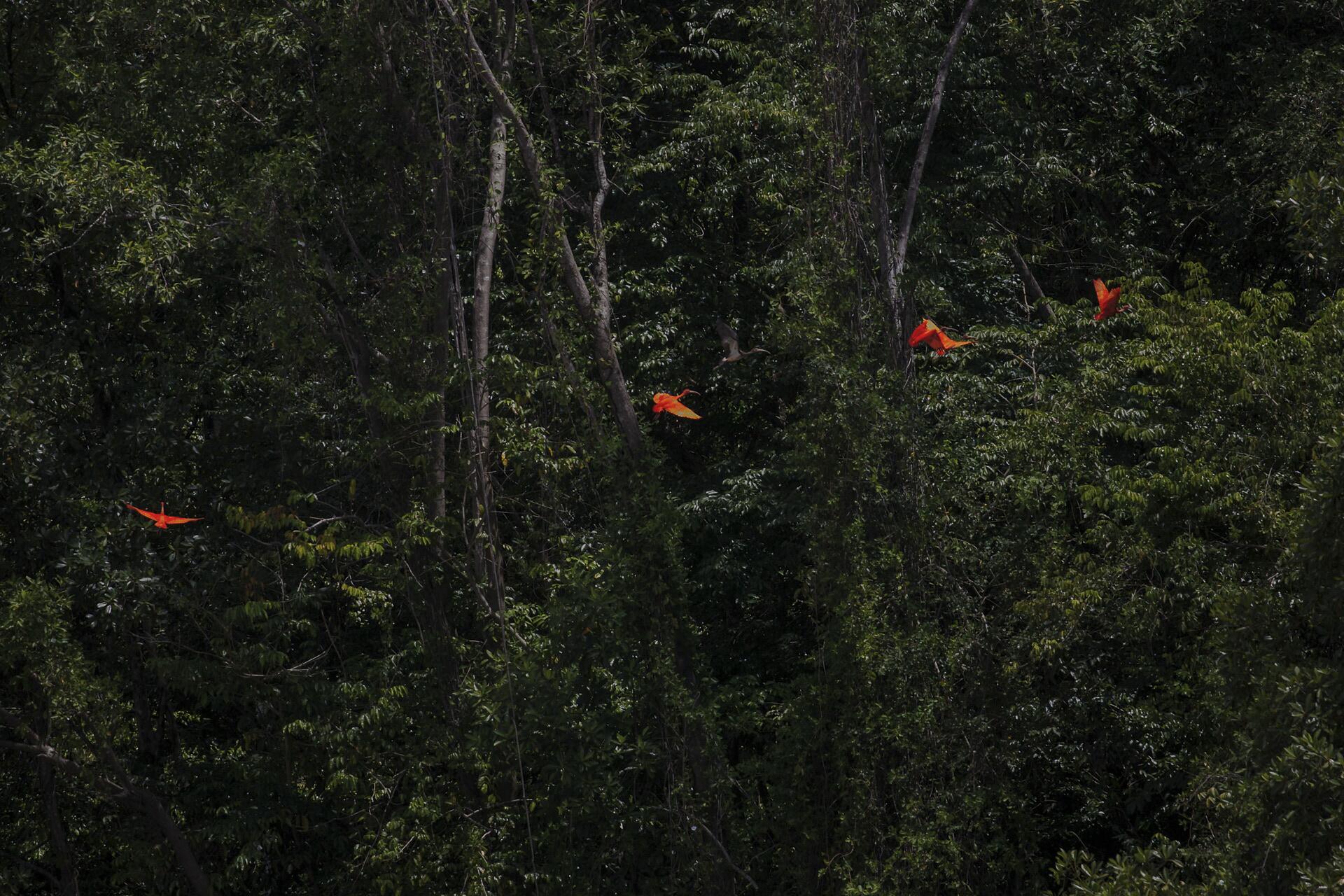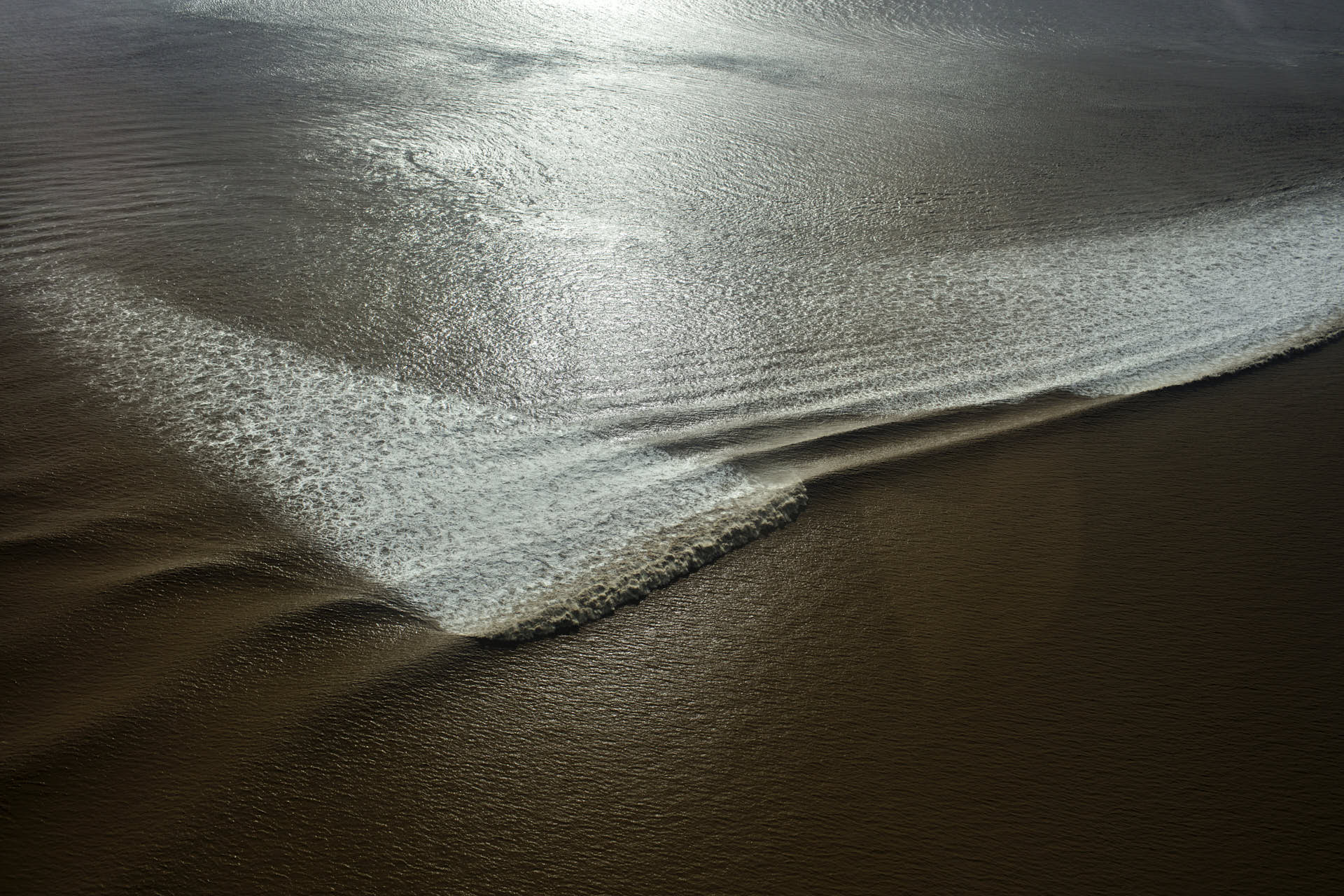Amidst disagreements within Lula’s government in relation to Petrobras’ plans to initiate the search for oil in the Foz do Amazonas (Mouth of the Amazon) basin, in an offshore well off the coast of the State of Amapá, 80 civil society organizations sent an official letter to ministries and government agencies asking the Brazilian Institute of the Environment and Renewable Natural Resources (Ibama) not to license the operation until precautionary criteria have been met.
The letter, filed on April 12, was addressed to the Minister of Mines and Energy, Alexandre Silveira; the Minister of Foreign Affairs, Mauro Vieira; the Minister of Fisheries and Aquaculture, André de Paula; and the Minister of Indigenous Peoples, Sonia Guajajara. The recipients also included the CEO of Petrobras, Jean Paul Prates; the President of the National Petroleum Agency (ANP), Rodolfo Saboia; the President of the Brazilian Institute of the Environment and Renewable Natural Resources (Ibama), Rodrigo Agostinho; and the President of the National Foundation of Indigenous Peoples (Funai); Joenia Wapichana. A copy was also sent to the Minister of the Environment and Climate Change, Marina Silva.
The 23-page document is based on technical opinions issued by Ibama itself over the course of the licensing process for the prospecting operation in the so-called Block 59, which is located 160 kilometers off the coast – a process that has been going on for nine years, ever since the British company BP was the holder of the area, which was transferred to Petrobras in 2021.
Signed by environmental organizations operating at both the national and local level as well as by associations of indigenous people, fishermen and extractive communities in the Amazon region, the text stresses that the licensing of Block 59 “cannot be viewed in a one-off light”. The letter’s signatories maintain that if oil is found and a decision is made to explore it, this will pave the way for deepwater exploration throughout the Brazilian coast’s entire so-called equatorial margin, which stretches from the State of Rio Grande do Norte to that of Amapá.
In a section of the letter, they point out that this coastal strip includes 80% of the country’s mangroves and a reef system that has not been studied much and which is regarded as being fundamental to fishing activities. Many of its areas are officially classified as “priority areas for the conservation, sustainable use, and distribution of the benefits of Brazilian biodiversity” and are considered to be of “extremely high” and “very high” biological significance.
In addition to Block 59, there are a further 11 blocks that have been granted by the National Petroleum Agency in the equatorial margin, eight of which are also in the licensing process for drilling, as well as 47 that are on “permanent offer” for concession by the agency, along with 157 that are being studied to be put up for auction.

Birds fly over a mangrove area in the coast of Amapá, one of the places that will be affected if the oil prospecting goes ahead in the so called block 59, 160 kilometers from the coast. Photo: Victor Moriyama/Greenpeace
For this reason, in the document, the organizations argue that any decision that represents the opening of a new frontier of oil exploration in the equatorial margin should be preceded by more extensive studies regarding this activity’s compatibility with the local society and environment’s characteristics. Furthermore, they point out this “political, economic project” is “incoherent” with the need for a “just and inclusive energy transition” and with the “socio-environmental commitments assumed by the Brazilian government with the Brazilian population and the global community, clashing with both the National Policy on Climate Change’s guidelines as well the Paris Agreement.
“We are at your disposal to contribute with scientific information that can serve as technical support for a broad debate with Brazilian society in relation to the opening up of new exploratory frontiers, bearing in mind their impacts and risks over the short, medium and long term,” the 80 organizations state in the text.
Using the analyses carried out by the Brazilian Institute of the Environment and Renewable Natural Resources (Ibama), which is the body responsible for licensing enterprises on the Brazilian coast, the letter requests that, prior to any decision being made about Block 59, the following measures be adopted:
The drafting by the Ministries of Mines and Energy and of the Environment of a Sedimentary Area Environmental Assessment (SAEA), an instrument established in 2012 that would make it possible to take into account the “cumulative and synergistic impacts of the entire [oil] production chain on environmental and socioeconomic factors”.
Greater dialogue with communities that could potentially be affected, including prior consultation with indigenous and traditional peoples, with “guaranteed access to information and participation” regarding the impacts and risks resulting from the oil industry’s future installation in the region, “particularly the cumulative ones,” bearing in mind all the exploration blocks granted by the ANP and listed for concession.
The conclusion of the drafting of the “hydrodynamic basis” of the equatorial margin, which would make it possible to plot the oil dispersion scenarios in case of an accident with greater precision. This basis, under Petrobras’ responsibility, could theoretically resolve doubts in relation to the current scenarios outlined by the state company, which do not envisage any oil arriving on the coast of the State of Amapá if there is a leak.
A demonstration of the effectiveness of national and cross-border response actions anticipated by Petrobras in the case of a spill, taking into account the possibility that the oil will reach the waters of French Guiana in roughly 10 hours’.The civil society organizations’ text also asks that the documents of the negotiations made by the Brazilian state company with the Guianese and French authorities be disclosed.
The letter was sent at a moment when the licensing process for Block 59 is at a standstill. A Pre-Operational Assessment of the Individual Emergency Plan – during which Petrobras was supposed to demonstrate its capacity to manage accidents in the block’s area – had been pre-scheduled for the end of March, but ended up being postponed. The state-owned company has had a drillship in Block 59 since August last year, in addition to six ships anchored in the port city of Belém, waiting for the simulation exercise.
Both the Minister Marina Silva and Rodrigo Agostinho, the president of the Brazilian Institute of the Environment and Renewable Natural Resources (Ibama), told SUMAÚMA that they are analyzing the possibility of conducting the Sedimentary Area Environmental Assessment prior to any decision being made regarding licensing, but that this requires a decision on the part of the government, not just by the Ministry of the Environment and Climate Change.
Alexandre Silveira, the Minister of Mines and Energy, has already said he regards oil exploration in the equatorial margin as being “the passport to the future of the North and Northeast regions. In his most recent statements about the matter, Jean Paul Prates, Petrobras’ CEO, said in late March that after the results of drilling in Block 59, when the company has an accurate picture of the potential for oil production in the region, “society” should make the decision regarding its exploration. In a video he said “we are prepared to explore new reserves if society so decides”. However, it is well known that once drilling starts, it is very difficult to stop it.
Prates’ statements are in line with a letter forwarded by the state-owned company to Ibama, on March 21 to oppose the possibility of a Sedimentary Area Environmental Assessment being carried out prior to licensing. In the letter, the company stresses that the assessment is not a legal requirement for the issuing of an operating license for drilling in the block. It then goes on to say that other broader assessment instruments of the region could be undertaken before the next stage, of oil production. The company argues that “both Ibama and Petrobras have experience in the use of instruments that are applicable to more complex undertakings or those where there is a greater degree of uncertainty, which can rectify any significant gaps resulting from the lack of a Sedimentary Area Environmental Assessment and that can be planned for future stages of development of production in the State of Amapá’s Deep Waters region”.
As a result, the deadlock has become more entrenched. In their letter, the 80 organizations say they are on “very serious alert” at a moment when “the exploitation of fossil fuels has brought the planet to a climate crisis and a biodiversity crisis, and when Brazil is once again putting itself forward as a global protagonist in terms of these agendas.
Spell check (Portuguese): Elvira Gago
Translation into Spanish: Meritxell Almarza
English translation: Mark Murray
Photography editing: Marcelo Aguilar, Mariana Greif and Pablo Albarenga






